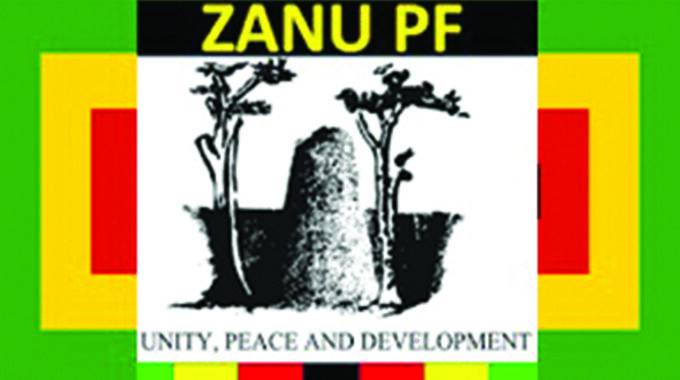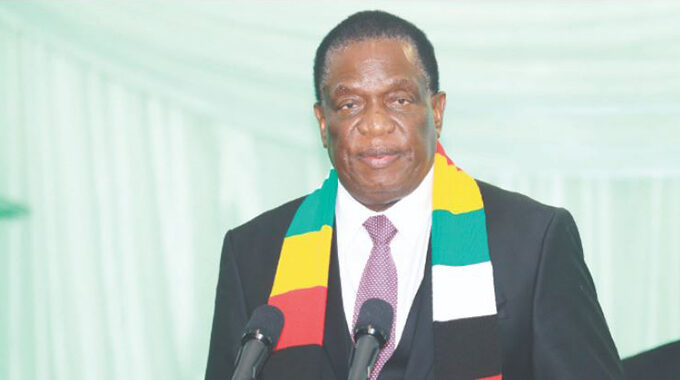Kennedy Mandaza, kennedy@mapesafoundation.org
STREET corners, communities, social media spaces and office corridors, are abuzz with discussions on the merits and demerits of the resolution taken by Zanu-PF at its Annual National People’s Conference held at the end of October last year, seeking the extension of the term of office of the President, in light of Vision 2030. These discussions and debate to change a national constitution in my view is not only constitutional but vital to the continued strengthening of democratic processes.
Our national constitution, enacted in 2013 after a referendum, like any other constitution serves as the foundational legal framework that defines the rights, responsibilities and structure of Government. As our societies evolve, so too should the rules that govern them. This dynamic relationship between governance and change is essential to ensuring that the constitution remains relevant and responsive to the needs of the people it serves.
This debate, which might necessitate constitutional amendments should not be seen just as an exercise in legal re-organisation — it is indeed an integral part of our democratic process. The conversations should acknowledge that a constitution, by its very nature, is flexible enough to adapt to the changing realities of society.
The conversations, both in public and private spaces, within and outside Zanu-PF, of the potential amendment to the constitution, reflects our nation’s commitment to democracy and the rule of law.
While there are legitimate concerns and challenges involved in this process, it is important to understand why the conversations are essential for democracy, how it strengthens democratic values and why it is necessary to engage with all voices, including those who oppose change.
It is also important to understand that a constitution is more than a legal document; it is a living document that must serve the people through the ages. It must also be noted that when the current constitution was first written and subjected to a referendum, it reflected the societal values, expectations and circumstances of its time.

However, since societies are never static, changes in social norms, technological advancements, economic realities and political ideologies can all necessitate constitutional changes, to address the current realities.
Furthermore, amendments may allow for the rectification of past oversights, to ensure that the constitutional framework remains aligned with the evolving values of the society it governs. In this way, discussions about constitutional change should be viewed as a reflection of the democratic principle that the law should serve the people’s needs, not the other way around.
Notwithstanding, constitutional changes, especially those that are significant in scope or substance, can impact the lives of all citizens. Therefore, it is essential that people have a voice in the process. This can take the form of public consultations and debates within legislative bodies, but the ultimate goal should always be to ensure that the voices of the people are heard. Any dissenting voices should be heard and acknowledged. The reasons for opposing the proposal should be interrogated from a sober and objective perspective.
By engaging in discussions about proposed changes, citizens contribute to the democratic process, thereby deepening the relationship between government and the governed. This democratic engagement also encourages civic education, as people must often educate themselves about the issues involved in constitutional changes, the potential consequences and the broader implications for their country. A robust debate over constitutional changes fosters a more informed electorate, which, in turn, strengthens democratic institutions and accountability.
This process of debate must serve as a check on the power of political elites who might seek to manipulate the constitution for their own interests. In this way, conversations around the constitutional amendment process itself become a safeguard for democracy and any agreed position must reflect broad consensus.
As Zimbabwe strives for a healthy democracy, the proposed changes, if they result in a constitutional amendment, should never be a matter for politicians alone. The people must have a voice in determining whether such changes are in their best interest. Public opinion, in this regard, should be both an indicator and a guide, which will help gauge the pulse of society and provide leaders with a clearer understanding of the public’s concerns, aspirations and expectations.
The role of public input in this process should allow for inclusivity and transparency, so that there is trust in our democratic institutions and an increase in public confidence in the integrity of political decision-making. Moreover, it should enable lawmakers to consider new perspectives and concerns that might otherwise be overlooked, so that constitutional amendments address the real needs of the people rather than the desires of a select few.
Importantly, when the voices of ordinary citizens are involved in such discussions, the resulting amendments are more likely to be embraced by society, as the people will feel a sense of ownership over the changes, giving legitimacy to the process and helping to avoid feelings of disenfranchisement.
As stated recently by President Mnangagwa, the opposition should play an important part in ensuring that processes are thoroughly interrogated. Furthermore, democracy thrives when there is room for dissent and disagreement, particularly on matters as significant as the constitution.

Those who oppose proposed changes serve a crucial function by raising concerns, questioning assumptions and offering alternative perspectives. This ensures that any proposed change undergoes rigorous scrutiny and is not adopted without careful consideration of its potential consequences.
Additionally, they often act as a check on the enthusiasm of reformers, reminding society of the risks that accompany change. Concerns raised by those in opposition can lead to amendments that are more nuanced and balanced, or to a re-evaluation of proposals that might have unintended negative consequences.
In this sense, opposition does not weaken the democratic process but strengthens it, as it forces the debate to consider a wider range of viewpoints and interests. Furthermore, those in opposition to the proposal should not be labelled or given negative tags, because their dissent gives rise to rational and objective conclusions.
It is important, however, that the process of debating, particularly resolution number one of the Zanu-PF National People’s Conference, remains respectful and civil. The goal should always be to ensure that all voices are heard and that the ultimate decisions are made in a manner that reflects the best interests of society as a whole. This opportunity for open debate should be embraced and the ability to reach consensus is an essential component of a healthy democracy.
Zimbabwe is a nation built on democratic principles. In that regard, the current discussion of a possible constitutional change is not just constitutional; it is essential and commendable. In my view, it is a reflection of an evolving society that seeks to ensure its foundational legal document remains relevant, just, effective and attends to the wishes and aspirations of the masses of Zimbabwe.
This debate over a possible constitutional change should serve to deepen our democratic processes, allowing citizens to participate in decision-making while ensuring that their voices are heard.
Furthermore, it must be celebrated that opposition to such changes plays a critical role in safeguarding democracy by fostering accountability, transparency, encouraging careful consideration of potential risks and ensuring that proposed amendments reflect a broad consensus.
Ultimately, it is through such inclusive, participatory, and thoughtful processes that democracy grows stronger and more resilient. Whatever will be the outcome of the raging debate, Zimbabwe should be the ultimate winner. After all is said and done, “The voice of the people is the voice of God.”